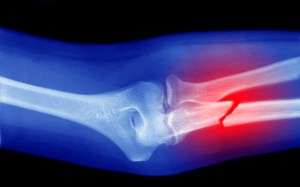It is almost that time of year again! Daylight saving time is almost over, so it is time to fall back this weekend. It ends at 2 a.m. on Sunday, Nov. 4, and we all gain an extra hour of sleep.
While we do get that precious extra hour, it does mean more of us will have an afternoon commute in the dark. And thankfully with our modern technology, we only have to worry about changing clocks on microwaves and ovens. Smartphones, cable boxes, computers and other tech will automatically change their clocks back.
Videos by PopCulture.com
The practice of changing clocks during the year has become controversial in recent years. It is supposed to save energy, lower crime and prevent traffic accidents, according to the Department of Transportation. It was instituted in the Standard Time Act of 1918, and became a year-round practice during World War II. Then, it became federal law with the Uniform Time Act in 1966. Hawaii and Arizona are the only states that do not follow it. American Samoa, Guam, Puerto Rico and the Virgin Islands also do not observe it.
However, some consider it an outdated process. Timothy Morgenthaler, Mayo Clinic’s co-director of the Center for Sleep Medicine, told USA Today there have been several studies questioning daylight saving time’s impact on health, and some of it has not been positive.
For example, it can impact sleep patterns. Some studies also show daylight saving time has “no significant effect” on the driving activity, but Morgenthaler said it was still important to be cautious on the road after clocks change.
A limited 2014 study at the University of Colorado found that the risk of heart attack also increases 25 percent after Americans lose an hour of sleep when daylight saving time goes into effect. When the clock gives the hour back in the fall, the risk drops by 21 percent, according to the small study. Another preliminary study by the American Academy of Neurology in 2016 found a small increase in the risk of stroke, caused because the time change disrupts the body’s internal clock.
Morgenthaler cautioned that these studies do not show the whole story, adding, “Of several published between 2010 and 2014, three studies showed that DST increases the risk of acute myocardial infarctions (AMIs), however, two others demonstrated that the timing (but not the incidence) of strokes and AMIs may be influenced by DST.”
In a previous USA Today report, David Earnest, a professor of neuroscience and experimental therapeutics at Texas A&M University, said people should be able to adjust to time changes within a day or two.
“When it falls on the weekend, sometimes people think they get to sleep in an hour later, and they decide to stay up two, three hours later,” Earnest explained. “When you celebrate the time change and the extra hour, you overshoot, and irregularity adds to the problem.”
Photo credit: Alfred Gescheidt/Getty Images









